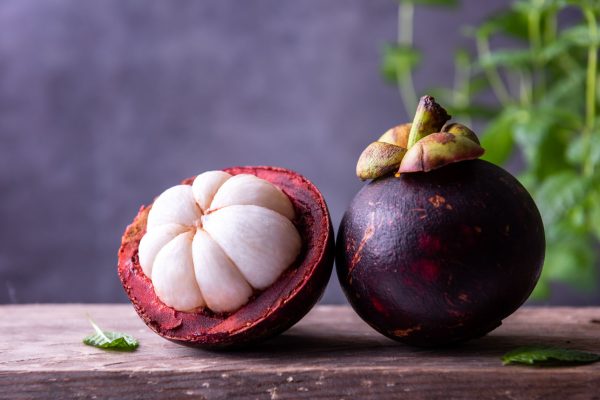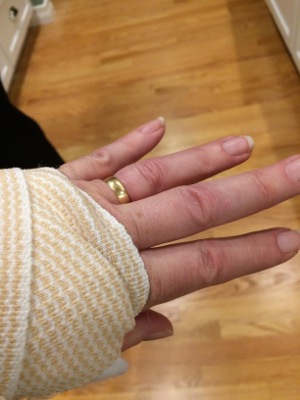Your immune system operates at a slower rate when you are pregnant. This is beneficial since it protects the developing fetus. It also prevents your body from mistaking it for a foreign object. The drawback of this immune deficiency, however, is that it makes you more susceptible to cold-related problems. Such as a stuffy nose, cough, and sore throat since your system is less equipped to defend itself against several common cold viruses. Being sick when pregnant can make you feel down. Thankfully, there are some guidelines you may adhere to. Follow these in order to feel at ease and make the situation tolerable. Looking for cold home treatments, you may use while pregnant? Try these practical suggestions for home remedies for cold during pregnancy.
Quick Glance On Pro Tips For Cold During Pregnancy
You might wish to try the following if your conditions become worse:
- For sinus pain relief, alternate between applying hot and cold compresses.
- Saline nostril drops and sprays to release nasal mucus and calm irritated nasal tissue.
- Chicken soup to help alleviate irritation and calm congestion.
- Inhaling warm, moist air to help alleviate discomfort.
- Using a facial steamer, hot-mist vaporizer, or even taking a hot shower can assist.
- For sore throat relief, add honey or lemon to a steaming mug of decaffeinated tea.

Home Remedies For Cold During Pregnancy
These home remedies for cold during pregnancy are highly successful. Choose the natural remedies that appeal to you. Remember, different women may respond to these in varying degrees. Nevertheless, it is recommended that you obtain medical guidance if these treatments do not prove to be beneficial.
1. Get Steam
Steam does wonders in removing cold-related mucous. Use a humidifier or just intake steam from a pot of boiling water. Eucalyptus oil added to hot water is very effective at clearing congested sinuses or respiratory passages. Another benefit of steam is that it soothes sore throats.
2. Humidifier
The common cold is notoriously prevalent in the fall, winter, and spring. Particularly if you’re expecting and unable to use your typical OTC medications. You could feel incredibly uncomfortable and dry due to the chilly temperatures, low humidity, and dry heat from the furnaces. A humidifier becomes your new best buddy at this point.
A humidifier is among the greatest things you can do to treat a cold or cough while pregnant. Introducing moisture into the environment aids in increasing (or maintaining) the relative humidity levels. This assists thin mucus and offers momentary relief for your cough and runny nose. You should install a humidifier in your bedroom at night. Also, at the space where you spend time while you’re unwell. This will assist you in moistening your skin as much as possible.
3. Ginger
Ginger is a potent anti-inflammatory, antifungal, antimicrobial, and oxidative substance with active components like gingerols and shogaols. Although additional research is required to determine how ginger reduces cold symptoms. It is frequently prescribed as a cold and flu treatment in herbal medicine.
A chunk of ginger can be chewed while being seasoned with salt or honey. Chopped or crushed ginger and a cup of water can be simmered to produce ginger tea. This is one of the best home remedies for cold during pregnancy.
4. Coconut Oil
The antifungal, antibacterial, and antiviral effects of coconut oil are well established. Coconut oil contains high concentrations of lauric acid. It is very effective at dissolving the lipid covering of viruses, breaking down their outer envelopes, blocking maturity, and delaying viral proteins from attaching to host cell membranes.
Both physically and orally, coconut oil is highly healthy to use throughout pregnancy. To relieve cold symptoms, mix a teaspoon of consumable coconut oil into any warm drink.
5. Chest Rub Technique
Market-available chest massages are excellent for eliminating sinuses and easing chest discomfort. The soothing feeling that a chest rub produces may, though, irritate pregnant women who are intolerant to strong scents.
There is a different way to use them, though, and it’s really effective. Before going to bed, massage the heels of your feet with chest rub while wearing socks. You get comfort from a cough and a sore throat as a result.

6. Hydration
It’s crucial to stay hydrated during pregnancy. It’s even more crucial if you’re sick with a cold at the time. Water intake can thin mucus and ease congestion. Additionally, a study revealed that consuming warm beverages may help with cold symptoms such as chills and exhaustion as well as runny nose and dry cough.
Beverages at room temperature, on the other hand, can only help with runny nose, coughing, and sneezing. By consuming 8 to 12 cups of hot or lukewarm water, as well as other warm beverages, you can keep well hydrated and gain comfort from a blocked nose.
7. Use Prenatal Vitamins
Vitamin C, which boosts your brain’s normal immunological response of disease-fighting antioxidants to combat the illness, is one of several minerals and nutrients found in vitamin supplements. Vitamins A, D, E, iron, selenium, and zinc are just a few of the immune-stimulating elements found in a regular prenatal vitamin.
Additionally, foods rich in vitamin A, D, E, iron, selenium, and zinc, such as carrots, mangoes, cantaloupes, raspberries, green beans, bell peppers, pumpkin seeds, walnuts, collard greens, legumes, boiled spinach, asparagus, can help to improve your immune system.
8. Apple Cider Vinegar
Pregnancy cold remedies that are both safe and effective include apple cider vinegar. Apple cider vinegar’s alkaline qualities make the atmosphere unfavorable for infections, which kills them. Start consuming apple cider vinegar as quickly as the initial signs of a cold or other pregnancy-related illness appear.
A cup of hot water should be combined with a tablespoon of apple cider vinegar. To get the most advantages, it’s best to gargle and then swallow the mixture. Twice a day, you can ingest warm water with apple cider vinegar.
9. Honey Lemon Drink
A honey and lemon beverage helps to calm the mind and relax the throat. The lemons add a boost of vitamin C, while honey has a built-in antibacterial property. Just strain some fresh lemon juice into a mug, sprinkle a little honey on top, then fill the rest with lukewarm water.
Add some fresh ginger for added warming and motion sickness relief. The best advice is to take a teaspoon of honey before night to lubricate your throat and stop that yucky cough.
Frequently Asked Questions
1. When To Go To A Doctor?
Even while the majority of colds don’t harm a baby, you should treat the virus more cautiously. Birth abnormalities and early delivery are made more likely by severe complications. Immediately seek medical attention if you encounter any of the following signs:
- having trouble breathing
- chest strain or discomfort
- bleeding from the cervix
- dizzy spells
- disorientation
- extreme nausea
- Acetaminophen-resistant high fever
- hindered fetal movement
2. How to Avoid Cold During Pregnancy?
Prevention is better than cure. The side effects of a cold could include sinus infections, pneumonia, or bronchitis. Your chance of being infected and the consequences can be decreased by getting vaccinated against the flu. You can also lower your risk of illness by:
- Try to avoid being around somebody who is coughing or has a cold
- Consuming a balanced diet
- Regularly washing your hands
- Getting adequate sleep
- Avoid touching your face, particularly your lips and nostrils, which are easy entry points for bacteria into your body
- If someone has a fever, don’t share any fluids, cutlery, or silverware with them
- A balanced diet rich in fruits, veggies, lean protein, and good fats supports a robust immune response
- Regular exercise lowers stress
Let’s now read about home remedies for cold during pregnancy.
3. Will the baby be affected if I have a cold?
A fever during pregnancy often has little effect on the fetus. Common colds are generally minor infections. An individual’s immune system can typically manage them.
The fetus, nevertheless, can be impacted by the mother’s temperature and illnesses. It is crucial to consult a doctor right away if a patient has a fever or other infection-related signs. It is in order to determine the best course of treatment.

Conclusive Insights
Spend as much time asleep as you can to combat the virus. Rest as much as you can so that the system can combat the virus. This will also assist future mothers in recovering more quickly. Additionally, staying in bed stops the virus from affecting other members of the family.
When you’re expecting, becoming ill can be very uncomfortable. And you might question if it’s okay to take over-the-counter medicines to treat your discomfort. In general, medical professionals advise against using drugs for the first 12 weeks of pregnancy. It’s a good idea to speak about what is suitable and what you should prevent with a specialist. If you wish to take something to minimize flu symptoms or you’re already taking medicine for a disease, consult a specialist.





